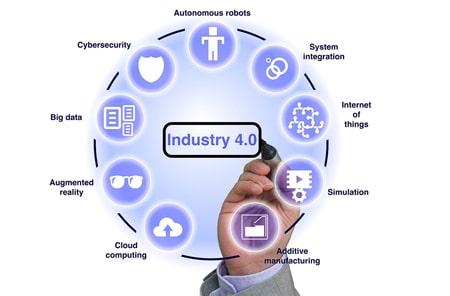 A manufacturing execution system is a significant analytical tool for documentation and tracking of the manufacturing process. Design Systems, Inc. are experts in MES implementation and can build an MES solution customized to your specific environment.c
A manufacturing execution system is a significant analytical tool for documentation and tracking of the manufacturing process. Design Systems, Inc. are experts in MES implementation and can build an MES solution customized to your specific environment.c
What Is a Manufacturing Execution System (MES)?
Manufacturing execution systems collect data in real time that relate to the manufacturing process, tracking and documenting every step in the process as finished goods are transformed out of raw materials. Because a computerized system can collect and analyze this information so quickly, decision-makers can then utilize it to control the production process and its multiple elements.
MES Implementation
A manufacturing execution system performs a number of valuable activities as its scope has been further refined over the years by international models and standards. Examples include the following:
- Evaluation of Performance: This is accomplished via an audit interface that facilitates integration of data from other systems.
- Tracking and Tracing of Production: A complete history of equipment, lots, and orders can be presented upon request because of the capability to retrieve and register related information.
- Production Performance Analysis: Performance indicators like overall equipment effectiveness of a past period or Work In Progress overviews of a current stage of production can be used to create useful information.
- Production Process Scheduling: Manufacturing execution systems receive production requirements from another system, such as an ERP, and make optimal use of local resources with a collection of work orders to determine the production schedule.
- Resource Management: The right availability and capability of resources are essential to prepare and execute production orders. MES helps to accomplish this by analysis, registration, and exchange of information regarding the various resources.
What Are the Benefits of a Manufacturing Execution System?

In certain industries that are regulated by the government, such as the pharmaceutical or food and beverage industries, documentation and proof is sometimes required regarding actions, events, and processes during production.
MES implementation can be an extremely valuable tool for manufacturers in these industries because it captures not only the outcomes of the manufacturing process but also the processes and data to create an “as-built” record detailing every step.
However, the potential benefits of MES are not limited to these industries. Other potential benefits of MES include the following:
- “Just-in-case” inventory eradicated
- Cost-information regarding downtime, labor, scrap, and tooling captured more accurately
- Uptime increased
- Paperless workflow activities incorporated
- Scrap, re-work, and waste reduced
- Setup times decreased
Custom Manufacturing IT Solutions (MITS)
DSI can deliver you a custom manufacturing execution system that will allow you process visualization, streamline order management, assembly operations, logistics, and maintanence support.
Just a few of the things our highly customizable MITS solutions can assist with includes yard management, work instructions such as material checks, warehouse management, plant visualization and alarm monitoring, picking and kitting, preventive maintenance, data integration, inventory management, stock level management, and material containment. It can also help you create digital stock lists and aid in asset tracking.
Industry 4.0
The advances in data exchange, cloud computing, and automation to foster “smart factories” has been referred to as the fourth industrial revolution, or as it is sometimes styled Industry 4.0. A smart factory works toward greater efficiency through the collection and analysis of time-series data via the process of manufacturing analytics.
The analysis helps manufacturing decision-makers improve production output by optimizing current conditions on the plant or factory floor.
In the 1990s, when Industry 4.0 systems were being developed, there was an overlap in functionality between different systems. Some structure was needed to correct this overlap, so the Manufacturing Enterprise Solution Association set the scope of MES in terms of 11 defined functions, which include the following:
- Performance analysis
- Document control
- Labor management
- Product tracking
- Quality management
- Performance analysis
These functions place MES at level 3 within a functional hierarchy between Level 0, 1, and 2 process control and Level 4 enterprise resource planning.
MES Manufacturing
Even within an Industry 4.0 smart factory, MES and related systems serve only as tools to provide decision makers with the information needed to optimize efficiency. As of now, decision-making responsibilities still fall to human beings. Some of the elements of Industry 4.0 as it relates to manufacturing include: autonomous robots, RGV (remote guided vehicles), system integration, IoT and IIoT, simulation, additive manufacturing, cloud computing, augmented reality, VR engineering, big data, cybersecurity, 3D scanning and more.
One of the decisions to be made is whether the purchase and implementation of a manufacturing execution system from Design Systems, Inc. would provide an adequate return on investment.
Contact us today, and we can explain the process of MES implementation and how we can tailor an MES to your specific manufacturing or industrial business case.
Design Systems, Inc. Reviews
5/2/2018